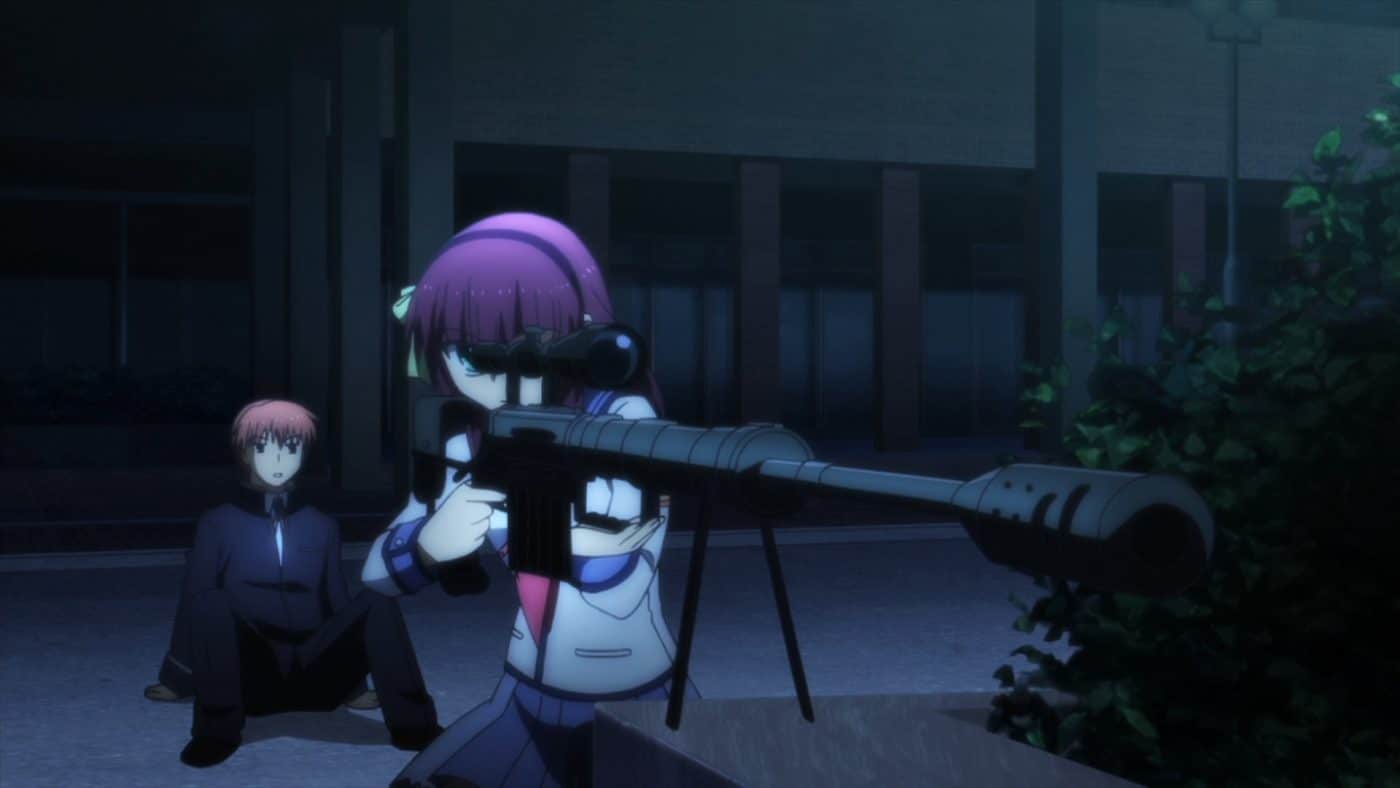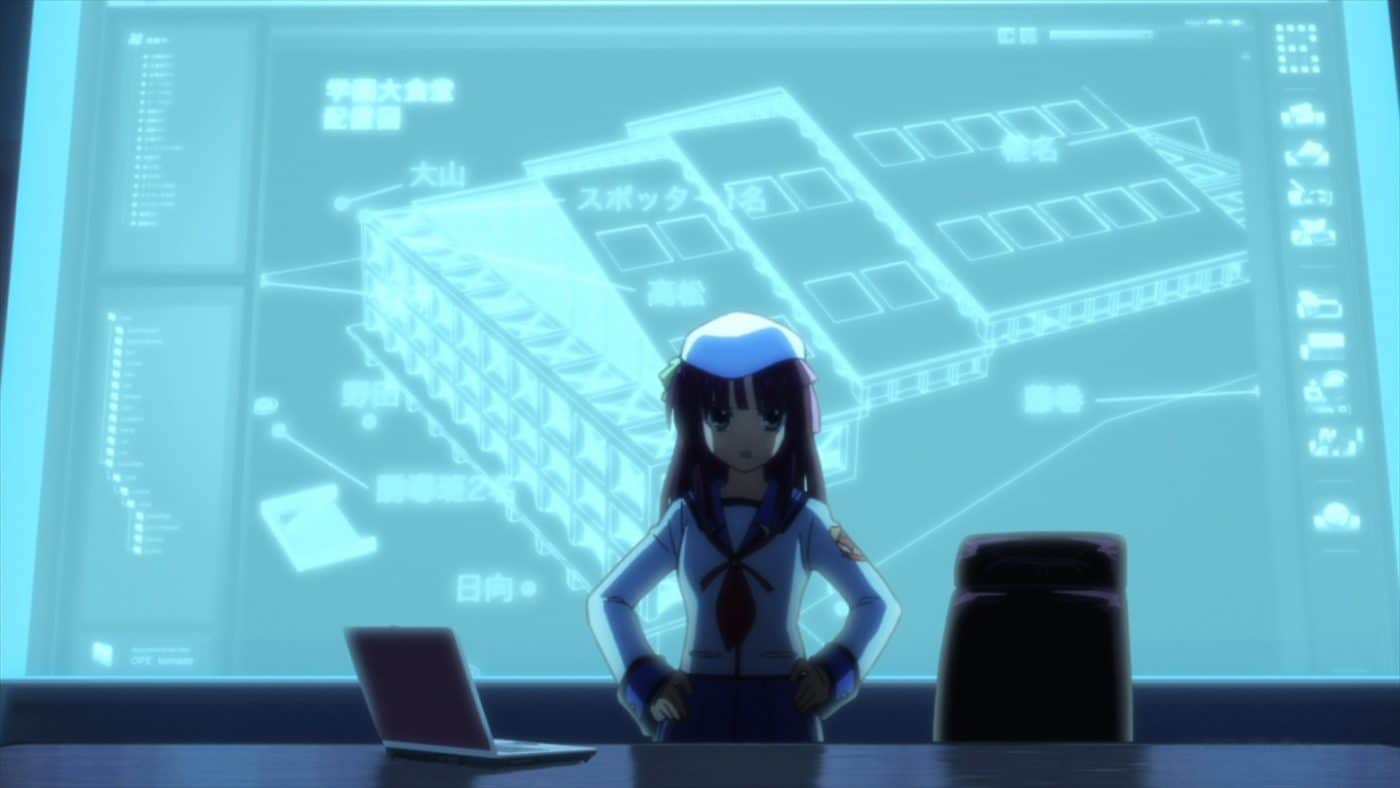Angel Beats!
13 Episodes + OVA*
2010
Genre
Supernatural; Comedy; Drama; Action; Psychological; Romance; Music
Synopsis
With only a vague memory of his own name, Otonashi awakens on the campus of an enormous school. Without wasting a second, a girl with a gun tries recruiting him into her battlefront, informing him their goal is to rebel against God for their unfair lives. Namely, they’re after the student council president of this school in the afterlife – a girl they’ve named ‘Angel’. A subsequent disastrous encounter with this nemesis later and Otonashi reluctantly agrees to join the battlefront. He is taught to fear the phenomenon known as ‘obliteration’ that would ultimately lead him to be reincarnated as God only knows what! However, with no memories to speak of, Otonashi finds himself wondering if obliteration is all that bad, and it seems he’s not the only one who has come to this conclusion…

Content Advisory
This is not a comprehensive list of every individual use of strong content, merely a guide to show you how extreme it gets and how strong it tends to be. Also, the tags I’ve given each segment (e.g. Very Strong Language) is based on my own system and does not necessarily reflect the tags the BBFC (or other national equivalent) use. According to my system, the ‘Mild’, ‘Moderate’, ‘Strong’ and ‘Very Strong’ adjectives are based on strength, not on volume. Now, obviously, the strength of any type of content is subjective; what I consider strong might just be a relaxing weekend for you. Hence, I have added an explanation for my decision to allow you to make your own informed decision.
Please also note that the ‘colourful’ language I am referring to here is based on sentai FILMWORKS’s English Dub. The Japanese Dub may (and probably does) differ.
Strong Language
A few uses of ‘shit’ and other milder language (e.g. ‘crap’, ‘ass’, etc.)
Moderate Bloody Violence
This show tends to opt for aftermaths over the actual events, so most of the blood depicted is not shown leaving the body, but rather uses environmental story-telling to encourage the viewer to work out what happened. Also, since none of the characters can die, the only truly intense use of blood is during some backstories. It’s sometimes even played for comedy! However, it should be noted that when it does show bloody aftermaths, there’s usually a lot of it!
Moderate Sex References
Played for comic effect. These include implications of being groped, questioning character sexualities, characters bragging about breast size, and other references of a similar level.
Mild Horror
Some villains that appear in one character’s backstory are depicted in a frightening way.
Amorphous shadow creatures are presented in a mildly threatening way.

Reasons to Watch
This is the difficult part. I don’t want you to see this entry as an oversized ‘DON’T WATCH THIS’ post. Equally, I don’t want to influence your opinion with a biased review – there’s a reason this website is called ‘Anime Insights’ and not ‘Anime Reviews’! In this section, I’m going to try to convey to you some of the reasons (in no particular order) that I’ve seen this series’ fans give for enjoying it!
Popular and well-received original series from much of the team behind Charlotte, praised in particular for its emotional story (as with a lot of writer Jun Maeda’s work!)
High production values (i.e. great artwork and animation) make this a good watch for those after a good looking series.
Barrier of Entry
The vast number of characters means that not all get their backstories told, so unless your favourite character is at the forefront of the story, you might not find out why they are in that world to begin with!
Some viewers may not like the way the series blends many different genres – afterall, it’s trying to blend music with some intense action, comedy and drama, etc. Some have praised it for this blend and others have hated it.

Music
Opening Themes
My Soul, Your Beats! by Lia (Ep. 1-3, 5-13)
My Soul, Your Beats! by LiSA (Ep. 4)
Ending Themes
Brave Song by Aoi Tada (Ep. 1-9, 11-12)
Ichiban no Takaramono ~Yui final ver.~ by LiSA (Ep. 10)
Ichiban no Takaramono by karuta (Ep. 13)
Hardcopy Notes
Technically, there are other OVAs* and Specials in existence, but only one was ever brought over here: Stairway to Heaven. Both UK and American versions contain this OVA*, but it doesn’t really add much to the series except an energetic comedy episode that could be considered a side-story. The episode itself, though, seems to fancy itself as the ‘BAD END’!
Staff List
Animation Production: P.A. Works
Director: Seiji Kishi
ADR Director: Steven Foster
Series Composition & Original Creator: Jun Maeda
ADR Script: Steven Foster & Jackie McClure
Music: ANANT-GARDE EYES & Jun Maeda
Original Character Design: Na-Ga
Animation Character Design & Chief Animation Director: Katsuzo Hirata
Art Director: Kazuki Higashiji
Lead Voice Actors
Hiroshi Kamiya as Yuzuru Otonashi
Harumi Sakurai as Yuri “Yurippe” Nakamura
Kana Hanazawa as Kanade “Angel” Tachibana
Lead Voice Actors (sentai FILMWORKS)
Blake Shepard as Yuzuru Otonashi
Brittney Karbowski as Yuri “Yurippe” Nakamura
Emily Neves as Kanade “Angel” Tachibana
For Your Anime Dictionary
*OVA (sometimes also referred to as OAV) stands for Original Video Animation and is basically a straight-to-DVD episode. They tend to be fun self-contained episodes that have little to do with the main plot of the series, though there are many complete series that have been entirely made up of OVAs! Because they aren’t subjected to broadcast content restrictions, these can have more explicit content and any length they find suitable.
